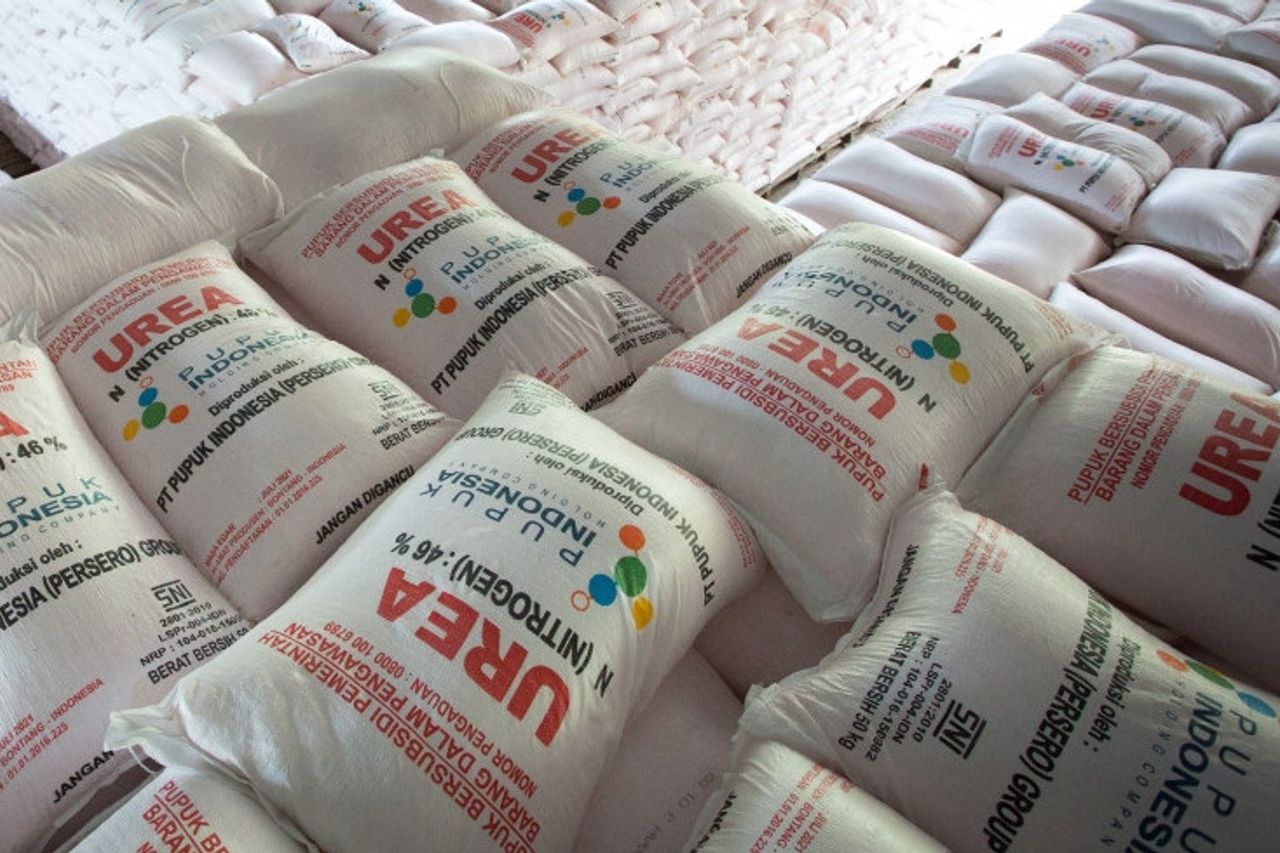Ministry Of Agriculture Ready To Fulfill National Fertilizer Needs

JAKARTA - The Ministry of Agriculture (Kementan) is ready to meet whatever needs for subsidized fertilizers, even though the allocation of subsidized fertilizer in 2020 is reduced to 7.95 million tons according to the electronic-based Group Needs Definitive Plan (e-RDKK). However, before adding, it must first evaluate the possibility of reallocation between regions.
The Director General of Agricultural Infrastructure and Facilities (PSP) of the Ministry of Agriculture, Sarwo Edhy, said that this year's fertilizer allocation fell by 900 thousand tons from last year's 8.8 million tons. This year's total allocation will later be allocated evenly to all regions according to their needs.
The Ministry of Agriculture noted that until March the absorption of subsidized fertilizers for farmers had reached 21 percent or around 1.66 million tons of the total allocation in 2020 of 7.9 million tons.
"Fulfilling the need for fertilizer is elastic. If the national need is lacking, it will still be met. We will submit the rest," he said, through a written statement received by VOI, in Jakarta, Sunday, March 8.
Edhy said that currently his party had submitted an additional 1.2 million tonnes. However, before this is done, reallocation should be done if possible.
For the additional mechanism, if it is at the District level, the Regency will seek reallocation from other Districts that have excess. If this happens at the district level, then the authority lies with the Provincial Agriculture Office, which is seeking reallocation.
"If the shortage occurs at the provincial level, then the authority lies with the Minister of Agriculture through the Director General of Agricultural Infrastructure and Facilities," he explained.
In order to ensure that all fertilizer needs are met, Edhy appealed to serious regions related to e-RDKK by adding an attribute of Population Identification Number (NIK).
"With this NIK-based and electronic system of data collection of target candidates, the accuracy of farmer names is more accurate and the limitation of cultivated area under 2 hectares is more accountable because it can be directly verified by the system," he explained.
This is because, according to Edhy, the government allocates subsidized fertilizers according to RDKK, and budget allocations according to the raw area of rice fields set by ATR / BPN. "RDKK according to the potential for planting planning in each village and district area, will greatly determine the accuracy of the allocation of subsidized fertilizers," he explained.
In addition, entering the planting season, the Ministry of Agriculture has asked producers to immediately distribute. However, said Edhy, the distribution will still be based on the e-RDKK which has already been determined the allocation. According to him, the regional government should not be slow in issuing a decree so that the issue of scarcity of fertilizers does not arise again.
"In a number of regions, producers are not able to distribute if there is no decree. We hope the regions pay attention to this," he said.
So far, the distribution of subsidized fertilizers has started with PT Pupuk Indonesia as the first line. Fertilizer is then distributed to warehouses at the provincial level, then sent to distributors in the district.
"The fourth line is sent to kiosks or retailers in the village. Later, farmers buy subsidized fertilizers at the nearest retailer," he said.
For your information, the Ministry of Agriculture has determined the allocation of subsidized fertilizer in 2020 of 7.94 million tons with a value of IDR 26.3 trillion. The distribution of subsidized fertilizers is carried out through the Pupuk Indonesia Holding Company, as a state-owned company that has been assigned the national fertilizer distribution assignment.
The details consist of Urea fertilizer 3.27 million tons worth IDR 11.34 trillion; NPK of 2.7 million tons worth Rp. 11.12 trillion; SP36 of 500 thousand tons worth IDR1.65 trillion; ZA as much as 750 thousand tons worth IDR 1.34 trillion; and Organic 720 thousand tons worth Rp1.14 trillion.
